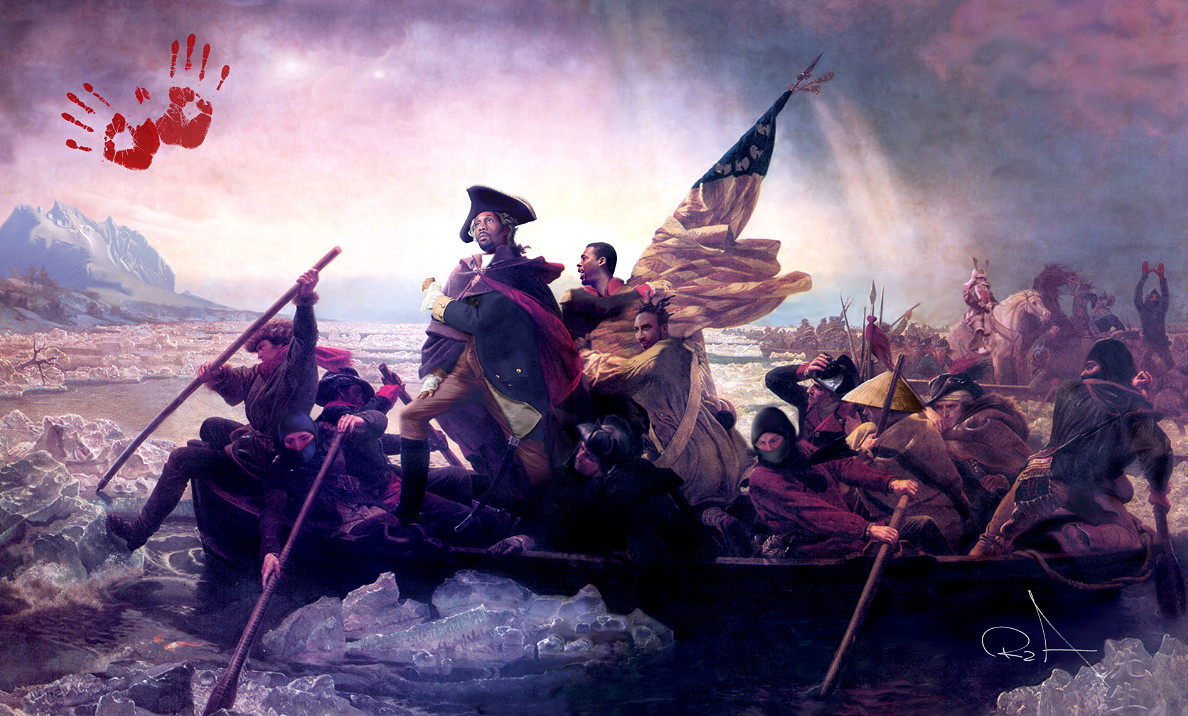Shaolin Monks on the Mic: Orientalism, Buddhism, and the Wu Tang Clan, Pt. 4

Conclusion
The Wu Tang Clan holds an elite position in the history of hip-hop as an act that greatly innovated the genre, and brought together nine different rappers and all sorts of disparate influences to create a unified whole. The synthesis of styles and influences serves to create an alternative artistic and spiritual narrative for the group; unsatisfied with the values thrust upon him by Western society, the RZA seeks out wisdom everywhere. With the inclusion of Oriental and Buddhist elements in particular, the Wu Tang Clan claims an identity as both black and “Asiatic”, and builds a framework through which to understand themselves and their circumstances. Returning to the curious case of the inclusion of the Heart Sutra in “Life Changes”, now with the understanding of the role of Buddhist teachings on the ideology of the Wu Tang Clan, this hip-hop requiem mass to Ol’ Dirty Bastard attains additional poignancy. In The Tao of Wu, the RZA interprets the Heart Sutra as being “about that spark of God inside you”, and follows this explanation with “a street parable of courage” (Tao of Wu 64-65). This connects Buddhist teaching both to the search for identity and to the experience of suffering in the ghetto. Ol’ Dirty Bastard is sent into his next rebirth with a reminder of what he has learned from his time as a man of the Wu Tang: a guide to attaining knowledge of self and escaping the suffering he knew all too well.
Works Cited
Broughton, Jeffrey. "Bodhidharma." Encyclopedia of Buddhism. Ed. Robert E. Buswell, Jr. Vol. 1. New York: Macmillan Reference USA, 2004. 57-58. Gale Virtual Reference Library. Web. 8 May 2014.
Ching, Gene. “Hip Hop Fist: Wu-Tang Clan’s RZA and his Sifu, Shaolin Monk Shi Yan Ming?” Kungfu Magazine. (1999) 1-4. Web.
Deutsch, Nathaniel. “‘The Asiatic Black Man’: An African American Orientalism?” Journal of Asian American Studies. 4.3. (2001) 193-208. Online.
Floyd-Thomas, Juan M. “A Jihad of Words: The Evolution of African American Islam and Contemporary Hip-Hop.” Noise and Spirit: The Religious and Spiritual Sensibilities of Rap Music. Ed. Anthony Pinn. New York: New York University Press, 2003. 49-70. Print.
Gibbs, Melvin. “ThugGods: Spiritual Darkness and Hip-Hop.” Everything But the Burden: What White People Are Taking From Black Culture. Ed. Greg Tate. New York: Broadway Books, 2003. Print.
Hunt, Leon_. Kung Fu Cult Masters_. London: Wallflower Press, 2003. Print.
Iwamura, Jane. “The Oriental Monk in American Popular Culture.” Religion and Popular Culture in America. Ed. Bruce David Forbes and Jeffrey Mahan. Berkeley: University of California Press, 2000. Print.
Jorgenson, John. "Chan School." Encyclopedia of Buddhism. Ed. Robert E. Buswell, Jr. Vol. 1. New York: Macmillan Reference USA, 2004. 130-137. Gale Virtual Reference Library. Web. 8 May 2014.
The Man with the Iron Fists. Dir. RZA. Universal Pictures, 2012. Film.
Miller, Monica. “Don’t Judge a Book by Its Cover.” Religion and Hip Hop. New York: Routledge, 2013. 45-70. Print.
Ongiri, Amy Abugo. “‘He wanted to be just like Bruce Lee’: African Americans, Kung Fu Theater and Cultural Exchange at the Margins.” Journal of Asian American Studies. 5.1 (2002) 31-40. Online.
Pinn, Anthony. “Introduction: Making a World with a beat: Musical Expression’s Relationship to Religious Identity and Experience.” Noise and Spirit: The Religious and Spiritual Sensibilities of Rap Music. Ed. Anthony Pinn. New York: New York University Press, 2003. 1-26. Print.
Ritter, Peter. “This Monk Is a Boldface Name.” The New York Times 14 May 2006. Print.
RZA. The Tao of Wu. New York: Riverhead Books, 2009. Print.
RZA and Chris Norris. The Wu-Tang Manual. New York: Riverhead Freestyle, 2005. Print.
Taylor, Mark Lewis. “Oriental Monk as Popular Icon: On the Power of U.S. Orientalism.” Journal of the American Academy of Religion. 79.3 (2011) 735-746. Web.
Williams, Paul. Mahayana Buddhism: The Doctrinal Foundations. London & New York: Routledge 2009. Print.
Zahlaway, Jon. “Autopsy shows ODB died of accidental drug overdose.” LiveDaily. 15 December 2004. Web. 8 May 2014.